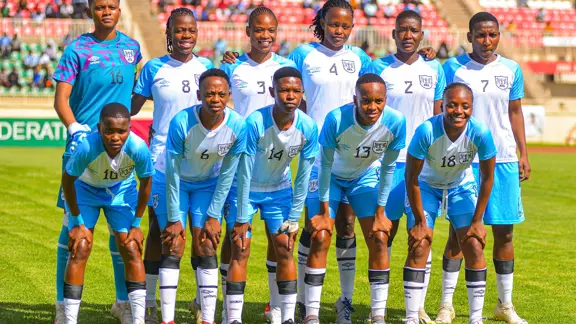News
New report illustrates level of multiple job-holding among elite women footballers

A new report from FIFPRO, FIFA and Australia's Edith Cowan University details how most top-flight women players are unable to earn enough through football to fully sustain their livelihoods.
A total of 736 players were surveyed across twelve countries and six continents in order to understand the level of multiple job-holding among elite women footballers around the world.
It found that over a quarter of elite women players have a secondary job in addition to being a footballer – and that over half of players surveyed were earning less than 5,000 USD a year from playing football. The full report can be downloaded HERE.
Countries covered in the survey include Australia, Botswana, Brazil, Chile, Fiji, Korea Republic, Mexico, Netherlands, New Zealand, Nigeria, USA, and Sweden.
Of the 736 players surveyed:
- 71.9% were playing at the professional level and were on a remunerated employment contract;
- 73.9% earned under 19,000 USD per year playing football;
- 67% earned a substantial portion of their income from playing football;
- 27% have a secondary job; 36% were undertaking formal education or study;
- Over half (52.8%) were earning less than 4,999 USD a year from playing football;
- 60% currently held a secondary job on a non-permanent contract;
- 20% of players had a secondary full-time job and 23% reported they took unpaid leave to fulfil their football commitments;
- Only 18% of player had a written football contract as a member of a national team.
"Women’s elite football has seen an exponential, but uneven, trajectory towards professionalisation in the past two decades. Yet, access to professional opportunities are not consistent across the world, meaning that many players are required to support their football career with a second source of income, which undermines players' ability to dedicate their time to excelling in professional football, whilst also impacting their physical and mental wellbeing," explains Dr Alex Culvin, Head of Strategy and Research, Women's Football at FIFPRO.
"This project seeks to understand the experience and consequences of the various forms of multiple job-holding that professional footballers engage in, a situation that is compounded by the presence of care work, such as looking after children and other family members, which globally is predominately the unpaid labour of women."
The report highlights a large variety in the type of multiple job-holding by women footballers based on geography; qualitatively, it shows that workers experience challenges balancing the expanding demands of football with other work in Australia, while multiple job-holding is significantly below average in Brazil.
Dr Culvin concludes: "It is critical that we shine a light on players who have demands beyond football, who experience disproportionately the effect of a labour market that is still developing; these factors increase the likelihood of losing talent from the game.
"It is important that there is continued investment into professional women’s football, with a focus of that investment towards a quality of employment that allows for football to be the full-time focus of players – in environments that are supportive of their sporting and overall wellbeing."

